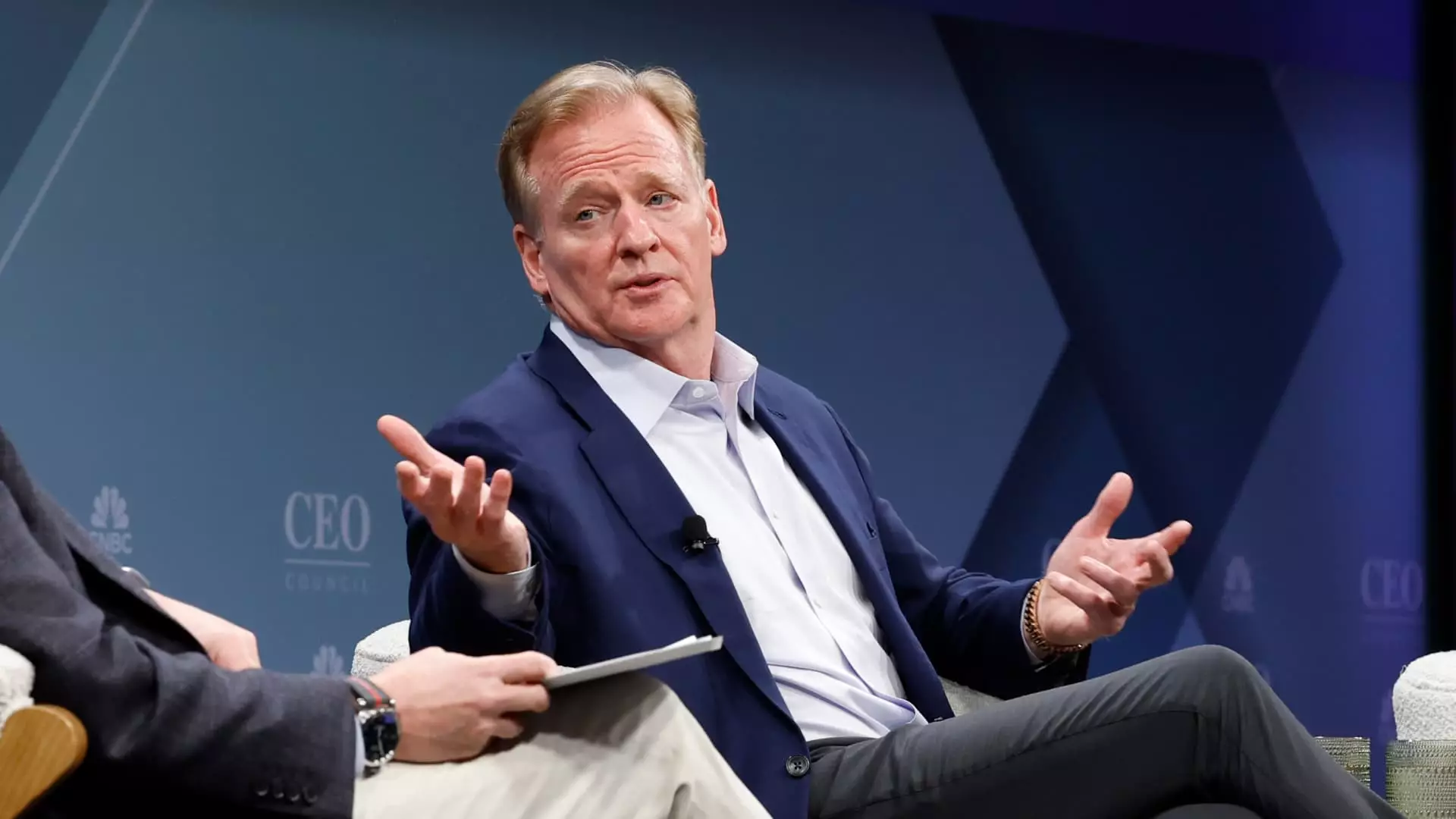The world of sports is forever evolving, a fact that NFL Commissioner Roger Goodell appears acutely aware of as he recently announced the league’s ambitious plans for international expansion. Projecting the possibility of up to 16 regular-season games played outside of the United States within the next five years, Goodell seems determined to transform the NFL into a truly global brand. However, one must question whether this aggressive strategy is a brilliant move or an overreach that risks diluting the product and alienating core fans.
The Allure of International Markets
Goodell’s revelation that the NFL has set its sights on international games is not merely a dream; it’s a calculated business maneuver. Currently boasting over 200 million fans in the U.S., the league has recognized that its international fanbase is ripe for growth. With a lineup planned that includes matches in culturally rich countries such as Brazil, Germany, and Spain by 2025, one cannot ignore the immense potential for revenue and brand extension these international games offer.
Yet while this vision of conquering new markets seems promising on the surface, it raises critical concerns about the authenticity of competition. Can the energy and passion of fans in London or Frankfurt truly replicate the electric atmosphere of a Sunday game in an American stadium? There is a risk that introducing too many games abroad could dilute the NFL’s identity, creating a landscape where the excitement of local rivalries and traditions becomes overshadowed by the novelty of foreign venues.
The Financial Engine Behind the Expansion
In recent discussions, Goodell noted that sports-related travel is a billion-dollar industry, with Marriott CEO Anthony Capuano stating that sports tourism accounts for more than $50 billion annually. This statistic offers a glimpse into the potential financial windfall the NFL could harvest through its international venture. However, one must approach this data critically: Will fans from these foreign markets return to the NFL in droves, or will initial excitement fizzle out once the allure of novelty wears off?
Moreover, in promoting this international agenda, is Goodell neglecting the foundation of his league? The average franchise is valued at an astounding $6.49 billion, and the NFL generated a record $23 billion in revenue in 2024. Yet, when juxtaposed against the fabric of American sports culture and its loyal fanbase, one may argue that pursuing overseas markets could distract the NFL from its commitment to its home audience.
The Role of Private Equity and Team Valuations
Goodell’s comments on private equity further complicate his optimistic outlook. By allowing investment firms to acquire stakes in teams, the NFL aims to bring liquidity and financial stability to franchises. However, this move has raised eyebrows. Are we witnessing a shift toward corporate ownership that prioritizes profit over the genuine passion of the game? While it’s undeniable that such investments can bolster team valuations—already sitting above $8.5 billion for some—one must contemplate the greater ramifications for the integrity of the sport.
As more investment flows in, the danger of commodification looms large. The very essence of what makes football appealing—the fan engagement, the traditions, the emotional connection—could be at risk of being diminished. It’s important to consider whether financial motivations will override the values that have drawn millions to the NFL for decades.
Navigating Economic Realities
Lastly, Goodell’s confidence that current economic challenges, such as inflation and tariffs, will not impact the league significantly is a bold assertion. While it may be true that demand for NFL content remains robust, ignoring broader economic trends could be a grave miscalculation. In a time when consumers are tightening their belts, a decline in attendance for both domestic and international games could pose a serious threat to Goodell’s ambitious plans.
The portrayal of the NFL as largely insulated from economic fluctuations feels overly optimistic, if not somewhat naive. While fans still crave NFL content, they also face real-world constraints that may deter them from indulging in international travel to watch their favorite teams play.
In this transformative moment for the NFL, one must carefully weigh the pros and cons of Goodell’s vision for 16 international games. If executed well and thoughtfully, this could elevate the NFL to new heights, but at what cost to its core identity? The league stands at a critical juncture, and the path it chooses could alter the landscape of American football forever.

